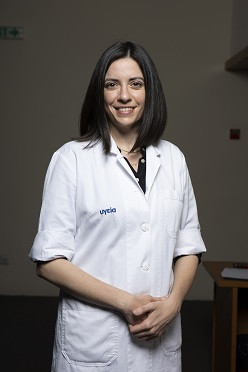Written by, Flora Stavridis, Oncologist, Director of the 4th Pathology-Oncology Clinic Health Maria Mitsogiannis, Oncologist, Associate of the 4th Pathology-Oncology Clinic Health
In recent years, artificial intelligence has been increasingly integrated into medical practice and is gradually affecting many aspects of oncology care. Innovative tools have already been integrated into clinical practice, opening new horizons in the diagnosis, treatment and follow-up of oncological patients.
How artificial intelligence works
The term “artificial intelligence” refers to the ability of computers to imitate human behaviors such as learning, problem solving and decision making. The development of computer science has led to the creation of sophisticated programs that can analyze large amounts of medical data, detect correlations and draw conclusions based on them.
The great advantage of these programs is that they learn from the data they process without the need for detailed programming on the part of the operator (machine learning). In addition, there are today even more advanced software that use multi-layer algorithms that simulate the functioning of the human brain (deep learning). These artificial intelligence tools are useful assistants to doctors in evaluating each patient’s data and making therapeutic decisions.
Cancer diagnosis
Early diagnosis is extremely important for effective cancer treatment. Artificial intelligence can be used to improve the accuracy of diagnostic imaging tests (such as CT scans, MRIs, mammograms) and detect small foci of suspicious malignancy that may escape the specialist’s attention.
For example, there are programs that quickly detect suspicious features in mammograms, while they can also predict the long-term risk of cancer based on the images they analyze. Thanks to the learning ability of these tools, their reliability increases with exposure to an increasing number of tests, so they become more and more efficient along the way. Similar programs can assess lung changes on CT scans and help diagnose lung cancer at an early stage.
Similar logic tools facilitate pathologists in examining biopsies for cancer diagnosis, identifying suspicious elements in histological preparations with great precision.
Personalization of anticancer therapy
In recent years it has become clear that each malignancy exhibits a different biological behavior, therefore the same therapeutic approach does not suit all patients. Artificial intelligence algorithms have been developed that, based on imaging, histological or clinical features, can make predictions about the prognosis of a tumor and the effectiveness of specific treatments.
For example, artificial intelligence programs can accurately predict the genetic signature of brain tumors based on images taken intraoperatively. Thanks to these data, no valuable time is lost until the appropriate postoperative treatment is started. There are also tools that can calculate the risk of recurrence in patients with early stage prostate, breast or lung cancer. Thus, appropriate treatment is given only to those at risk of disease recurrence, without burdening patients with a good prognosis from side effects of anticancer treatment.
Analysis of cancer biology and development of new drugs
Understanding the biological pathways leading to carcinogenesis is a key step in better treatment of the disease. There are models that mimic the behavior of key proteins involved in the creation of cancer and provide analyzes of their interactions at the cellular level. Such proteins could be new targets for future anticancer therapies.
In the field of new drug development, AI can help sort through the most promising early-stage molecules to focus future research there, saving time and money.
Future challenges
With the increasing integration of artificial intelligence into medical daily practice, it is a difficult task for doctors to feed the programs with good quality representative data, interpret the results correctly and make decisions based on them.
A reliable AI tool is a valuable aid in the effort to provide the best possible oncology care. There are certainly still challenges and room for improvement, however everything shows that we are facing a new era in the treatment of cancer.
Source :Skai
I have worked in the news industry for over 10 years. I have a vast amount of experience in covering health news. I am also an author at News Bulletin 247. I am highly experienced and knowledgeable in this field. I am a hard worker and always deliver quality work. I am a reliable source of information and always provide accurate information.











